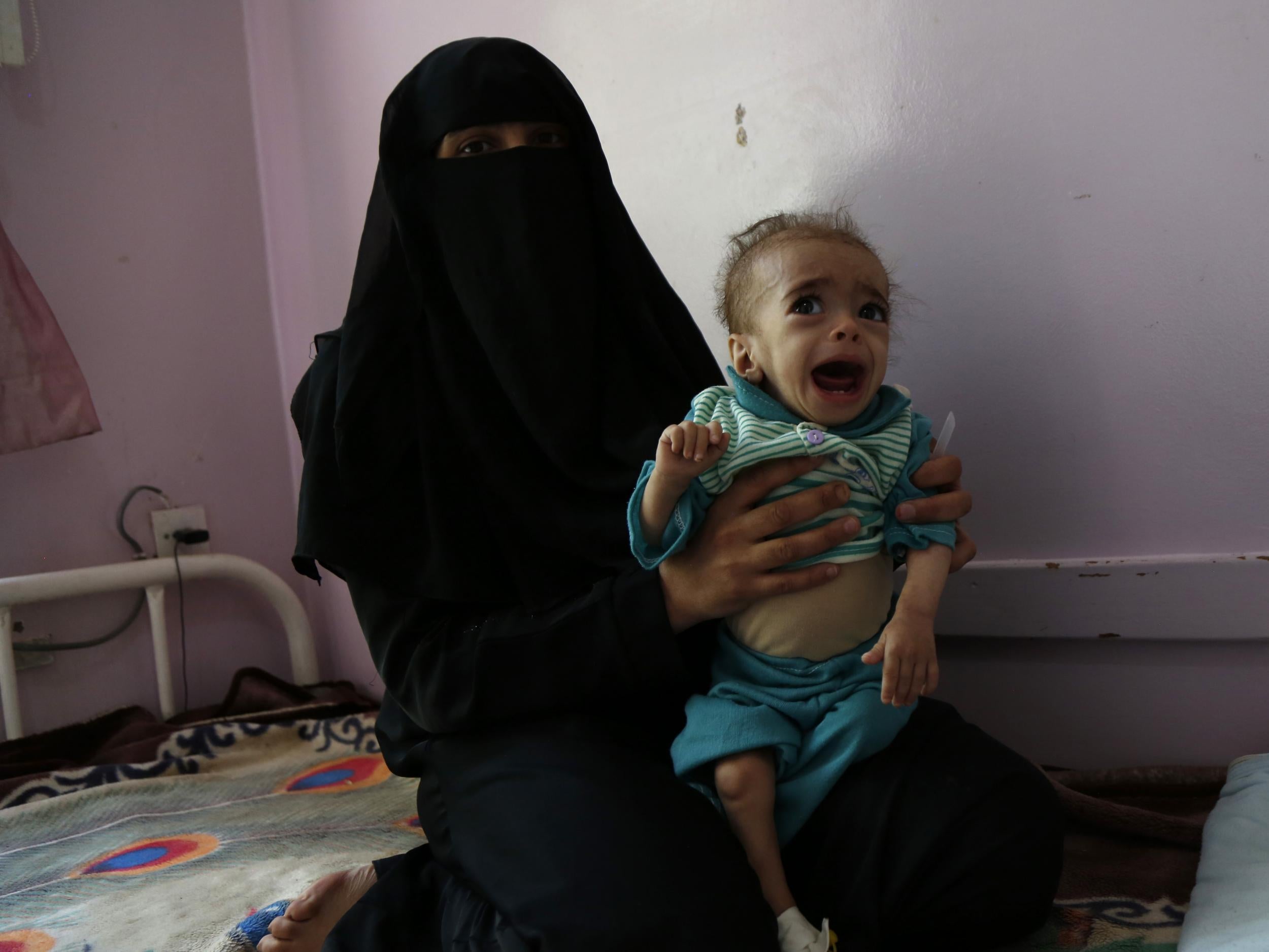Yemen cholera outbreak hits over 200,000 children in 2019, charities warn
Children account for nearly half of 440,000 suspected cases of the deadly waterborne disease in civil-war struck nation

Your support helps us to tell the story
From reproductive rights to climate change to Big Tech, The Independent is on the ground when the story is developing. Whether it's investigating the financials of Elon Musk's pro-Trump PAC or producing our latest documentary, 'The A Word', which shines a light on the American women fighting for reproductive rights, we know how important it is to parse out the facts from the messaging.
At such a critical moment in US history, we need reporters on the ground. Your donation allows us to keep sending journalists to speak to both sides of the story.
The Independent is trusted by Americans across the entire political spectrum. And unlike many other quality news outlets, we choose not to lock Americans out of our reporting and analysis with paywalls. We believe quality journalism should be available to everyone, paid for by those who can afford it.
Your support makes all the difference.Hundreds of thousands of children have been infected with suspected cholera in Yemen in the first six months of 2019 and the death toll is set to soar as the rainy season begins, aid groups warn.
There have been 440,000 suspected cholera cases reported in the civil war hit nation in 2019, already eclipsing the total of the previous year, the charity Save the Children said.
Data from the World Health Organisation shows that nearly half (203,000) of the infected cases are children, and the charity warns there have been 193 child deaths so far.
Death rates from the disease have doubled as conflict, now in its fourth year, has destroyed clean water and sanitation infrastructure that is necessary to prevent cholera spreading.
The bacteria lives in contaminated water and causes uncontrollable vomiting, diarrhoea and severe cases can lead to death by dehydration within hours.
Compared with the end of June 2018, nine times more people have died so far in 2019 and Save the Children is appealing for a renewed aid effort ahead of the country’s rainy season
“Disease outbreaks are now rife due to the collapse of the health system and weak sanitation systems and a population made increasingly vulnerable by forced displacement and malnutrition,” Tamer Kirolos, Save the Children’s country director in Yemen, said.
“The number of suspected cases has been relatively steady for some weeks, but the disease is endemic and we’re fearing a sharp spike because of the rains and flooding.”
Health services are also under strain with only half of health hospitals and clinics fully operational – the rest are closed or only partially operational.
The conflict in Yemen has left around 9.2 million children without proper access to safe water. Fuel availability is fluctuating, limiting the pumping of sewage and rubbish collection, leaving many parts of Yemen a breeding ground for infectious and waterborne diseases such as cholera.
Malnourished children are three times as likely to die from cholera infection and the disease itself is a major contributor to malnutrition in the country.
Aid groups are distributing rehydration supplements as well as water purification and medical facilities – though without an end to the war these solutions are only temporary.
“As long as the conflict rages on, clean water systems are breaking down and funding of aid in Yemen remains too low, all we can do is try and keep as many children as possible alive,” Mr Kirolos added.
Save the Children is calling on the UK to continue using its power at the UN Security Council to press all parties to implement the Stockholm Agreement in good faith.
Doctors have previously warned that the UK and US governments were critical in spreading cholera by supplying weapons and support to the Saudi-led coalition, which is targetting Houthi rebel groups.
Join our commenting forum
Join thought-provoking conversations, follow other Independent readers and see their replies
Comments